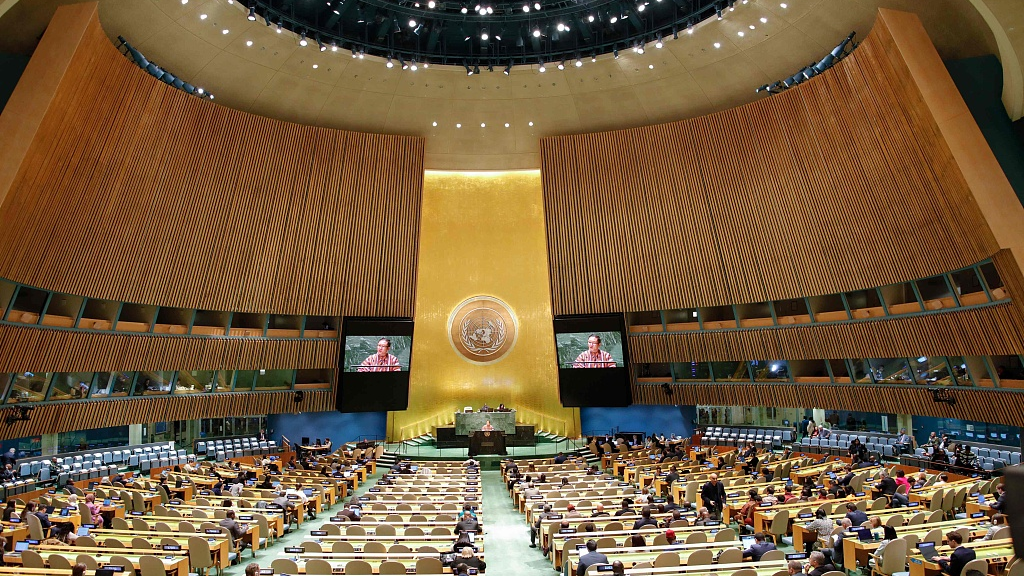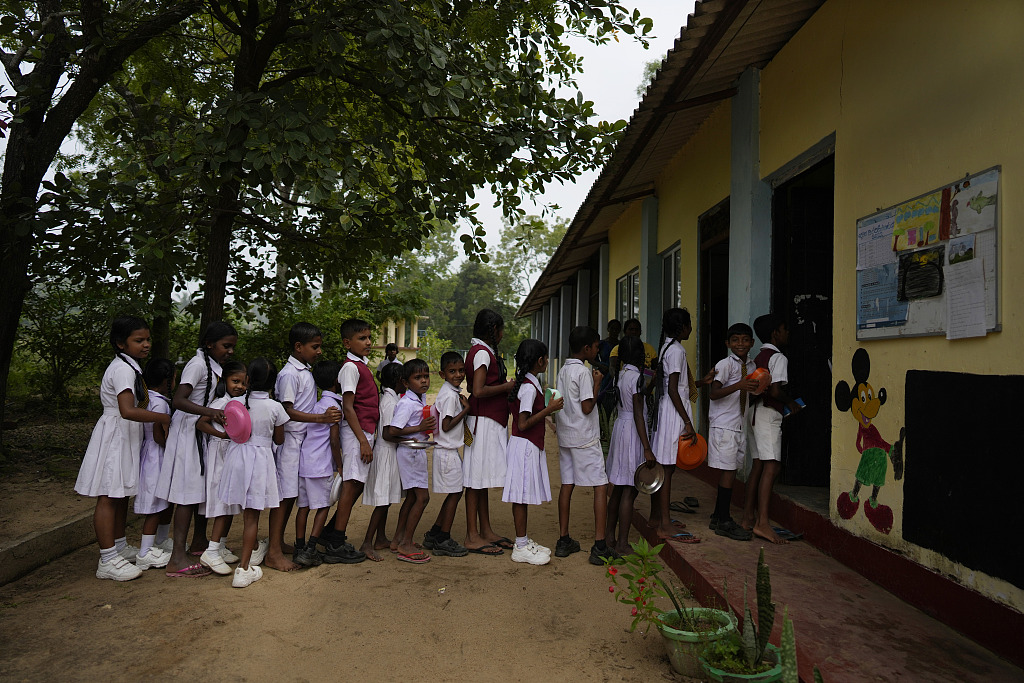
The 78th United Nations General Assembly at UN headquarters in New York, United States, September 26, 2023. /CFP
The 78th United Nations General Assembly at UN headquarters in New York, United States, September 26, 2023. /CFP
Editor's note: Imran Khalid, a special commentator on current affairs for CGTN, is a freelance columnist on international affairs. The article reflects the author's opinions and not necessarily the views of CGTN.
In the eyes of many in the Global South, the perplexing question persists: why should they stand in support of the U.S.-led coalition rallying behind Ukraine in its standoff with Russia? To them, this war seems to bear the indelible mark of a "chronic American war," or worse, an exclusively European feud that holds little relevance for their interests.
Recent events that took place during and around the United Nations General Assembly (UNGA) week have brought this issue into sharper focus. Foremost among these revelations is the stark reality that developing nations confront a multitude of overwhelming challenges, with climate change looming large on the horizon.
Yet, as British Foreign Secretary James Cleverly reluctantly conceded during his sojourn in New York for the UNGA that the war was "putting pressure on countries all over the world," their G7 counterparts seem to be incessantly fixated on the subject of "Ukraine, Ukraine, Ukraine."
Indeed, ever since the Ukraine conflict erupted last February, numerous nations from the Global South have refrained from openly taking sides. This refusal to immediately fall in line with Western dictates has irked leaders in the United States and Europe.
At this critical juncture, it becomes imperative to explore the viewpoints of the Global South regarding the Ukraine conflict. Such examination offers valuable insight into the dynamics of U.S. influence and the shifting landscape of geopolitical power. Simultaneously, it remains an undeniable reality that nations from the Global South are acutely aware of the economic ramifications stemming from the war. They have witnessed the surge in inflation and the spikes in food and oil prices.

Primary students queue up to receive a free meal given as a part of a feeding program at the Dalukana Primary School in Dimbulagala, Sri Lanka, December 12, 2022. /CFP
Primary students queue up to receive a free meal given as a part of a feeding program at the Dalukana Primary School in Dimbulagala, Sri Lanka, December 12, 2022. /CFP
Many nations within the Global South have a deep-rooted tradition of remaining "non-aligned," a legacy dating back to the Cold War. Their colonial history and the disastrous wars initiated by the U.S. and its allies in Iraq, Afghanistan, and other regions have cultivated a natural skepticism towards the Western powers.
The conflict in Ukraine has further exacerbated the divide between the Global North and South, shedding light on their contrasting priorities. While Western leaders are preoccupied with Russia's disruption of the "liberal democratic order" and the ascendance of China, a significant portion of the Global South is primarily focused on pressing economic and developmental challenges. These include issues like debt relief, food security, and climate mitigation, which loom large on their agenda.
What sets apart this contemporary version of "nonalignment" from its historical counterpart is its emergence within a period where developing nations wield considerably more influence than in previous decades. Washington appears to have been taken aback by this response, evidently unprepared for what has unfolded.
The rise of potent forces among these nations is particularly striking. Take, for instance, the collective gross domestic product in terms of purchasing power possessed by the BRICS nations surpassing that of the G7 consortium of advanced economies. This escalating economic prowess bestows active nonaligned nations with enhanced global leverage, affording them the capability to forge fresh initiatives in a manner that seemed inconceivable in the past.
Many of these non-aligned nations now possess a spectrum of choices – they can pivot eastward or they can glance westward. This brand of international relations has remained remarkably consistent.
During the Cold War era, the world was starkly divided into discernible camps, with the Soviet Union staunchly supporting certain nations, while many "non-aligned" countries found themselves within the orbit of the United States.
However, the current global landscape paints a more nuanced picture. Many countries in the Global South now stand on firmer ground, demonstrating greater maturity in their approach by eschewing entanglement in ideological battlegrounds.
Since the onset of the Ukraine conflict, they have gained substantial confidence in asserting their own positions, both economically and politically. These nations are actively shaping their foreign and national security interests for the future. This trend has been unfolding over the past few decades, with the Ukraine conflict serving as a vivid testament to their evolving assertiveness and independence.
There exists a palpable perception in the Global South that the lives of those residing in Europe and the United States are somehow deemed more precious than the lives of individuals embroiled in long-standing conflicts, whether it be in Africa, the Middle East or any other conflict zone that one can readily cite.
Ever since the Ukraine conflict erupted on February 24 last year, the focus has been drawn to the Global South. It all commenced with a keen examination of China's stance and its position in this unfolding drama. China is undeniably seen as the leader of the Global South, and in collaboration with Brazil and South Africa, it is actively striving to broker peace in Ukraine. What unites these three nations is their shared commitment, albeit through distinct approaches, to presenting peace proposals and advocating for negotiations and mediation. They all revolve around the notion of finding a peaceful resolution.
Furthermore, when you survey the landscape of countries that have been vocally engaged in the past year or so, particularly those often categorized as "middle powers," a label that has gained traction alongside the term "Global South," you'll discover a common thread. What binds these activist middle powers is their diverse yet consistent array of ideas aimed at halting the ongoing conflict. Apart from the incipient U.S.-China Cold rivalry and the ongoing Ukraine conflict, the resurgence of nonalignment in its contemporary "active" form underscores a prevalent disillusionment within the Global South regarding the traditional "Liberal International Order" that has been preached by the West since World War II.
(If you want to contribute and have specific expertise, please contact us at opinions@cgtn.com. Follow @thouse_opinions on Twitter to discover the latest commentaries in the CGTN Opinion Section.)